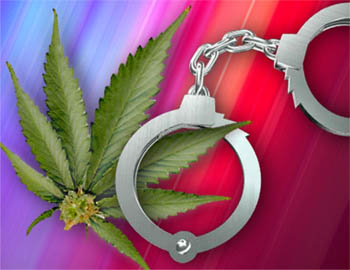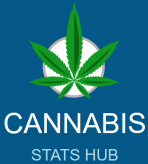
We must all be responsible adults especially *law enforcement and other professionals in the media and health care fields and seriously look at and listen to the scientific evidence.
Cannabis keeps getting compared to the toxic (deadly) drug alcohol. Cannabis is not toxic. Cannabis and alcohol are just not the same. Under the influence, behaviors are not the same as alcohol or pharmaceutical drugs for the most part.
Daily medical cannabis consumers generally gain experience and build up a tolerance. Most adults would not be impaired if they took an aspirin for a headache. The same can be said for daily medical cannabis consumers when consuming small amounts over the course of a day.
This is not to say experienced medical cannabis consumers can't become impaired by consuming cannabis concentrates, edibles or larger quantities of flowers even.
Several years now pharmaceutical drug advertisements have included warnings about possible side affects that could cause impairment, statements like, know how our drug effects you before operating motor vehicles or equipment. In other words consumption does not automatically equal you're impaired.
Distracted driving and walking are impaired behaviours. Parents drive while distracted by their children. Pet owners drive while distracted by their pets. Using a cell phone. Lack of sleep, human emotions, stress, mental health and more are all part of the important impaired issue.
Education based on scientific evidence only without the typical proven reefer madness nonsense.
Be responsible and never drive whenever “impaired” from consuming any substance or distracted or for any other reasons!
Cannabis Driving Studies 2017 to 2002
June 27, 2017
Canadians for Fair Access to Medical Marijuana (CFAMM)
Medical Cannabis and Impaired Driving: A Preliminary Report
https://cfamm.ca/impaired-driving-report-1/
June 22, 2017
Crash Fatality Rates After Recreational Marijuana Legalization in Washington and Colorado
American Journal of Public Health (ajph)
Objectives. To evaluate motor vehicle crash fatality rates in the first 2 states with recreational marijuana legalization and compare them with motor vehicle crash fatality rates in similar states without recreational marijuana legalization.
http://ajph.aphapublications.org/doi/abs/10.2105/AJPH.2017.303848
March 27, 2017
Cannabis Use and Driving: Knowledge Translation Strategy Recommendations
Canadian Drug Policy Coalition (CDPC)
Simon Fraser University
In reviewing the evidence relating to cannabis impairment and driving, we have highlighted several main considerations with respect to context, tone, and audience when developing messaging for public education. This document outlines these considerations.
December 2016
US NHTSA Drugs & Alcohol Crash Risk Case Control Study
See 812355_DrugAlcoholCrashRisk.pdf
March 17, 2016 John W. Conroy QC wrote to Mr. Costen, Mr. Blair and Mr. Sidhu:
"I am attaching a most recent study on the issue of impaired driving by alcohol and drugs by the US National Health Transportation Safety Association(NHTSA)(The Virginia Beach Study) that, once again, supports the position that fears over impaired driving crash risk consequences from the greater consumption of cannabis by its “legalization” are misplaced and are no reason to further delay implementation of the proposed ‘legalization” scheme. The current laws in place are adequate while science and technology furthers its quest for a fair and effective roadside screening device or process."
June 3, 2016
Motor Mouth: Hysteria over ‘high driving’ is all half-baked
Marijuana, by most measures, is not in any way the scourge that alcohol is
http://driving.ca/auto-news/news/motor-mouth-hysteria-over-high-driving-is-half-baked
June 2015
Drug and Alcohol Dependence
Study conducted at the University of Iowa’s National Advanced Driving Simulator (NADS).
https://now.uiowa.edu/2015/06/ui-studies-impact-marijuana-driving
Sept. 26, 2018
"found virtually no driving impairment under the influence of marijuana".
"First-of-its-kind study at University of Iowa's National Advanced Driving Simulator shows how cannabis and cannabis with alcohol impact driving"
http://cbdhealthcures.com/2018/09/26/first-of-its-kind-study-finds-virtually-no-driving-impairment-under-the-influence-of-marijuana/
February 2015
National Highway Traffic Safety Administration finds that drivers who use marijuana are at a significantly lower risk for a crash than drivers who use alcohol
Drug and Alcohol Crash Risk and
Results of the 2013–2014 National Roadside
Survey of Alcohol and Drug Use by Drivers
.
August 5, 2014
Since marijuana legalization, highway fatalities in Colorado are at near-historic lows
https://www.washingtonpost.com/news/the-watch/wp/2014/08/05/since-marijuana-legalization-highway-fatalities-in-colorado-are-at-near-historic-lows/
May 2013
Medical Marijuana Laws, Traffic Fatalities, and Alcohol Consumption
Mark Anderson, Hansen, researchers at University of Montana and Daniel Rees researcher at University of Colorado
The first full year after coming into effect, legalization is associated with an 8–11 percent decrease in traffic fatalities
http://www.journals.uchicago.edu/doi/abs/10.1086/668812
April 6, 2012
Marijuana Users Are Safer Drivers Than Non-Marijuana Users, New Study Shows
http://www.prweb.com/releases/2012/4/prweb9375729.htm
November 2011
Medical Marijuana Laws, Traffic Fatalities, and Alcohol Consumption
D. Mark Anderson University of Montana and Daniel Rees University of Colorado
Abstract:
16 states have passed medical marijuana laws, yet very little is known about their effects. Using state-level data, we examine the relationship between medical marijuana laws and a variety of outcomes. Legalization of medical marijuana is associated with increased use of marijuana among adults, but not among minors. In addition, legalization is associated with a nearly 9 percent decrease in traffic fatalities, most likely to due to its impact on alcohol consumption. Our estimates provide strong evidence that marijuana and alcohol are substitutes.
calgary420.ca/pdf/driving/dp6112.pdf
May 2010
The Effects of Cannabis Compared with Alcohol on Driving
PMC Journal: Authors - R. Andrew Sewell, MD,corresponding author James Poling, PhD, and Mehmet Sofuoglu, MD, PhD
www.ncbi.nlm.nih.gov/pmc/articles/PMC2722956
2007
CANADA SAFTEY COUNCIL
DRIVERS ON POT - ISSUES AND OPTIONS
HOW CANNABIS USE AFFECTS DRIVING
Alcohol causes more impairment than cannabis and carries a demonstrably higher crash risk. Drivers under the influence of cannabis are acutely aware of their impairment. They consciously try to drive more cautiously, for example by slowing down, focusing their attention and avoiding risks. Drinking drivers show more risk taking and aggression in their driving, have no insight into their impairment, and do not try to compensate.
https://canadasafetycouncil.org/traffic-safety/how-cannabis-use-affects-driving
2003
CANADA SAFTEY COUNCIL
HOW DOES POT AFFECT DRIVERS?
The psychoactive chemical in marijuana is tetrahydrocannabinol (THC). THC has a very different effect from alcohol. Pot users are acutely aware of their impairment - that is, they feel "high" - and some try to compensate by driving more cautiously.
https://canadasafetycouncil.org/traffic-safety/drivers-pot-issues-and-options
2002
REPORT OF THE SENATE SPECIAL COMMITTEE ON ILLEGAL DRUGS - SenateReport.ca
CANNABIS: OUR POSITION FOR A CANADIAN PUBLIC POLICY
Chapter: 8 Driving under the influence of cannabis
• Cannabis, particularly in the doses that match typical doses for regular users, has a negative impact on decision time and trajectory.
• Cannabis leads to a more cautious style of driving.
• The effects of cannabis when combined with alcohol are more significant than for alcohol alone.
www.parl.gc.ca/Content/SEN/Committee/371/ille/rep/repfinalvol1part4-e.htm
International Centre for Science in Drug Policy - calgary420.ca/pdf/driving/ICSDP-2.pdf
*Irresponsible law enforcement and media professionals
Dr. Susan C. Boyd, a B.C. researcher's book "Killer Weed: Marijuana Grow Ops, Media and Justice". about how law enforcement and media are not telling the facts.
Google Dr. Susan C. Boyd's "Reefer madness is governmental"
Note: Dr. Susan C. Boyd is a member of Liberal government "Task Force on Marijuana Legalization and Regulation"

